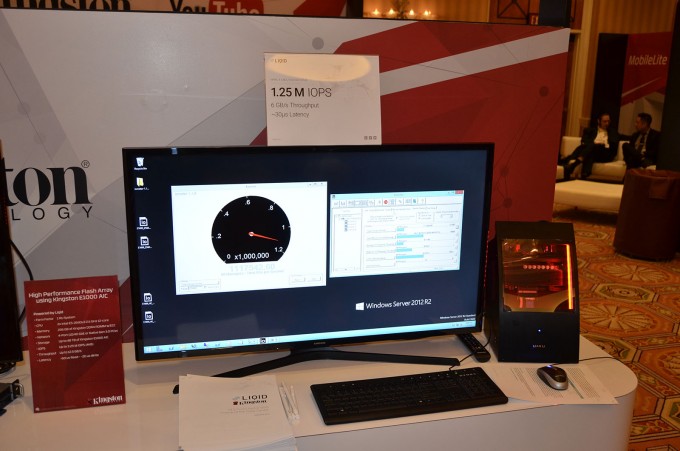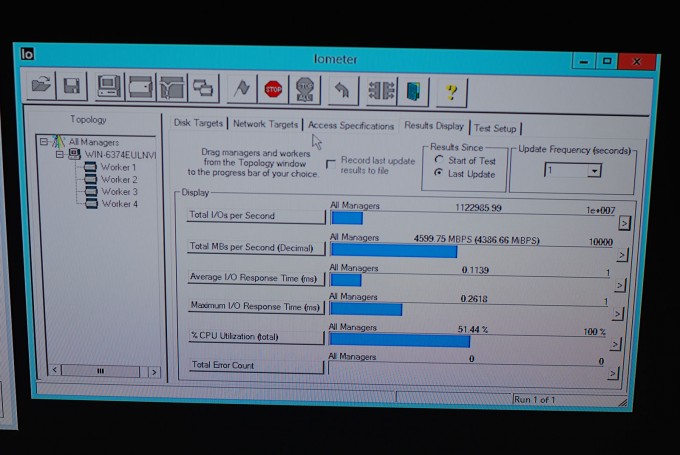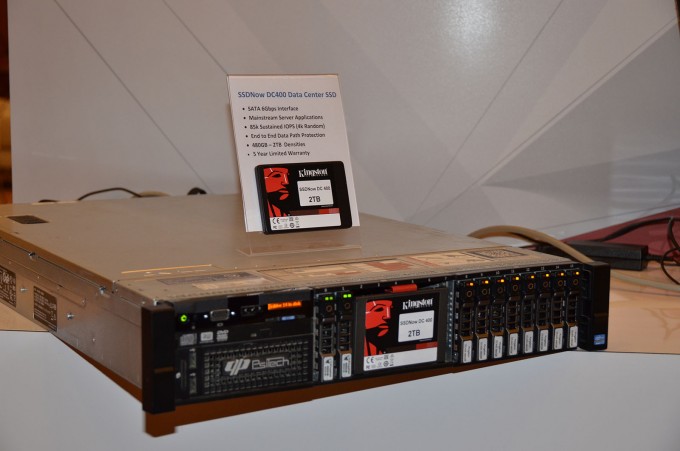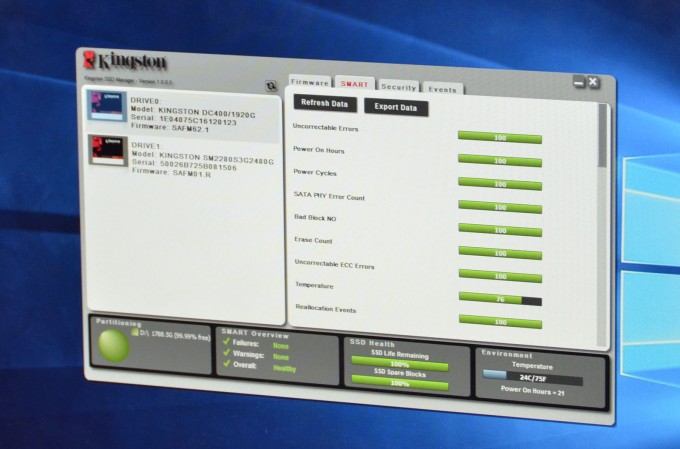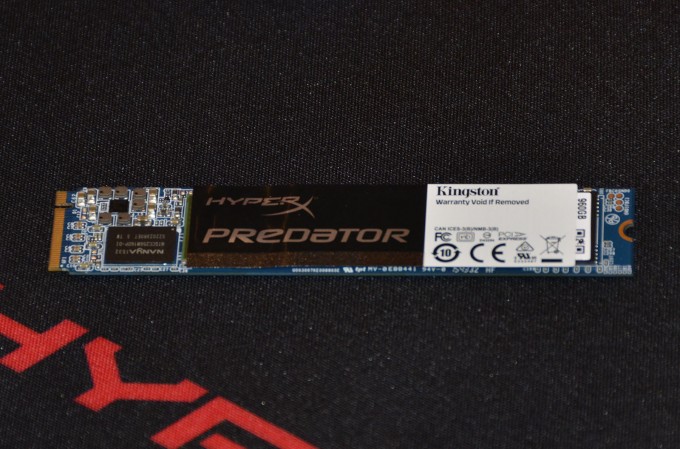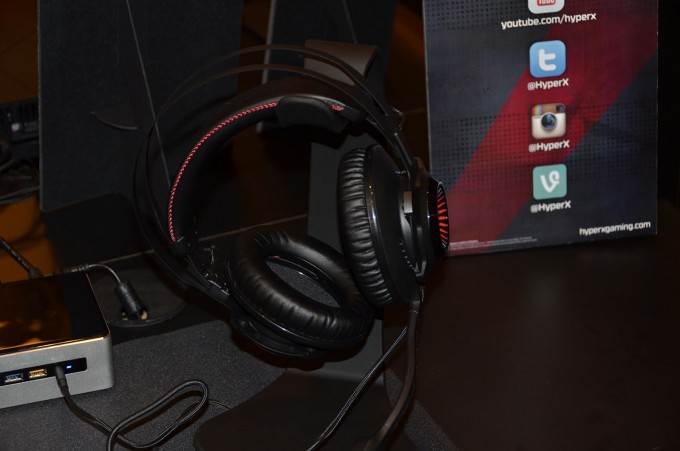- Qualcomm Launches Snapdragon 4 Gen 2 Mobile Platform
- AMD Launches Ryzen PRO 7000 Series Mobile & Desktop Platform
- Intel Launches Sleek Single-Slot Arc Pro A60 Workstation Graphics Card
- NVIDIA Announces Latest Ada Lovelace Additions: GeForce RTX 4060 Ti & RTX 4060
- Maxon Redshift With AMD Radeon GPU Rendering Support Now Available
A Tour Of Kingston’s CES 2016 Suite
Kingston announced four products in total at CES, but at its Caesar’s Palace suite, it had a handful of other things to whet our appetites with.
Our first stop was at a PC with a simple looking PCIe SSD. Under the hood, though, it was far from simple: it packed four M.2 SSDs behind a PCIe x8 bus and was able to peak at 6GB/s with 1.25 million IOPs. This kind of speed isn’t needed for the regular user or even enthusiasts, but for the datacenter, it could prove a real boon. Remember the time when 50K IOPs seemed mind-blowing? For reference, a regular hard drive is, at best, 150 IOPs. That makes this configuration over 8,000x faster than a mechanical hard drive.
Kingston told us that when these SSDs become available, multiple units can settle into a single server. Because a PCIe 3.0 bus offers so much bandwidth, we’d imagine users could team these for RAID 0 use to double bandwidth, although for most applications, we’d have to imagine that 6GB/s is going to be sufficient enough.
Kingston is no stranger to the enterprise market, but the SSDNow DC400 solid-state drive is the company’s first designed for the datacenter. Interestingly, some of Kingston’s customers have admitted to using consumer SSDs in servers, which they’re not really suitable for due to lack of optimizations and certain features. Thus, Kingston decided to finally cough up a new option for this purpose.
The DC400 SSD isn’t spec’d too differently from regular SSDNow drives, but once they become available on the market, they’ll be available in densities up to 2TB. Performance-wise, they’ll peak at 85K sustained IOPs (4K random), and offer end-to-end data path protection.
Alongside the DC400, Kingston will be releasing a specialized toolkit, giving IT peeps the ability to monitor each and every drive in use, with perhaps the most important feature being the ability to monitor drive endurance.
Kingston showed-off its HyperX Predator M.2 SSD at Intel’s Developer Forum this past September, and at CES, it showed it off again – but gave us very little new information to go on. Specs at this time are unconfirmed, but based on what we’ve seen from other vendors, we’d imagine final specs will be at least 2.5GB/s read and 1.5GB/s write. Kingston says that we’ll be able to expect this drive to drop sometime in Q2.
Last but not least, Kingston had another HyperX headset on hand, called the Cloud Revolver. I can’t for the life of me remember what made it special, but what I do know is that it, like many of the products listed here, will become available in Q2.
Overall, a great showing from Kingston. I think it might be time to inquire about review samples of that 1.25 million IOPs configuration…




